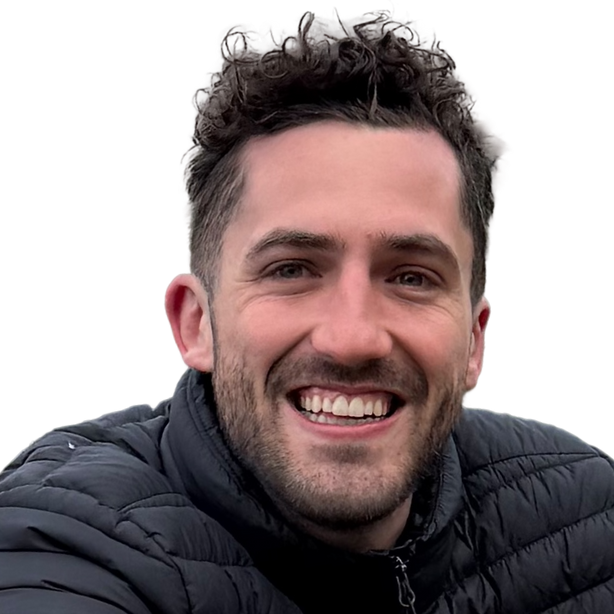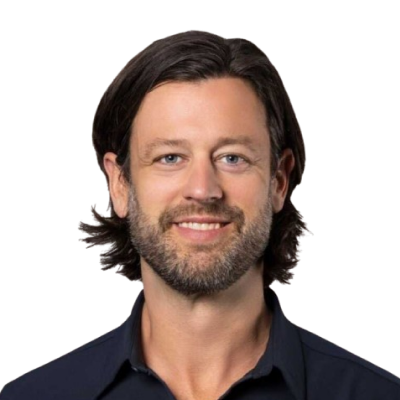

Eric Peters
Product Manager at HubSpot Academy
When Your Product is Content - Retention and Acquisition Tactics
We spoke with Eric Peters, product manager at HubSpot Academy, to find out how offering free online education and certification can empower product growth.
HubSpot Academy is the worldwide leader in free online training for marketing, sales, and customer service professionals. With over 200,000 customers, it has become the hub for their prospect and existing customers and it’s a product on its own.
We discussed:
- How they approach the needs of all the different users – existing customers, prospects (unseasoned and seasoned professionals) and content creators
- How they identify the Academy users that could turn into Hubspot customers
- Retention tactics
- How to exceed expectations and create delightful moments
- Managing intermediary stakeholders and external contributors that impact your users
- Why Eric thinks a “hybrid” model is the future of online education
You can also enjoy the podcast version here:
Transcript
Please note this transcript is automated
00:01 Desi Hi, everyone! Today I’m speaking with Eric Peters, product manager at HubSpot Academy, to find out how offering free online education and certification can empower product growth. HubSpot Academy is the world’s leader in offering free online training for marketing, sales and customer professionals. With over 200.000 users to take care of, and 5 years in the company, here is what Eric’s got to share.
00:44 Desi Hi, Eric! Welcome to The Product Show!
00:47 Eric Peters Hi there. Thanks for having me.
00:49 Desi It’s a pleasure to have you. Thank you for agreeing to spend some time with us. Okay so let’s start with a little bit about you, what’s your background? How did you end up at HubSpot Academy?
01:00 Eric Peters Sure thing. So I’m currently the product manager for HubSpot Academy, which is the application where all of our courses are taken. I started out studying Technology Entrepreneurship at a very entrepreneurship specialized college, here in Boston called Babson College. From there I really wanted to get into a tech startup of some sorts, then I jumped over to a platform as a service company in Boston, worked there for 5 years, really fell in love with growth, marketing and working in rapidly growing technology companies. And then in 2015 I joined HubSpot, specifically to work on HubSpot Academy and Certification Program. So I’ve been doing that, back then HubSpot Academy was a much smaller team and had a lot fewer users so it’s been really exciting to see it grow into what it’s become today.
01:56 Desi And when did you launch it?. When did you launch HubSpot Academy?
02:00 Eric Peters HubSpot Academy actually came out much earlier before I joined HubSpot, back in I think 2012. But from what I know the story is, the idea for creating it was actually having too many customers for the number of customers that HubSpot had. So it was built as this kind of one to many trading tool for our customers and partners, to teach them how to use HubSpot and get the most out of their HubSpot subscription. And in 2013-2014 when I started releasing certification courses, first certification was the inbound certification, which is still one of our most popular courses. And we had people kind of sneaking in and joining our course, even though they weren’t customers. And what we were teaching in that course is that you should really give away content for free and teach the world something, to show that you’re an expert and that will attract people to your business. That’s the inbound methodology, kind of in a nutshell. And so we said well let’s make it free and open it up to everyone. And then the inbound certification just became this free online course that was not the best at teaching SEO or marketing or email marketing, but it was probably the best at combining all those different topics into one cohesive methodology that small and medium sized businesses could really wrap their heads around it and use. So that’s the origin story for HubSpot Academy. Since then it’s grown a lot and I’m really glad that it started out as that customer enablement platform, because the needs and KPIs of those courses, when you’re worried about your customers, they’re different than if we just focused on acquisition from the beginning. So the team back then was really focused on creating behavioural change and making sure people understood how to use the software deeply. And we captured that feedback on this course and made them better and better and better. And that’s what actually turned them into such an attractive acquisition tool for us later on.
04:01 Desi Interesting! I actually thought as an outsider that it started as an acquisiton tool for HubSpot, but it looks like it was the other way around.
04:11 Eric Peters It was.
04:12 Desi Yeah, that’s very interesting. And it has become this hub for your existing customers and prospects, can you give us a little bit more about how you take care of both sides? And how do you approach their different needs?
04:29 Eric Peters You know, it’s not easy and we have customers who are very advanced and then customers who are just getting started and then we have prospects which are very advanced and which are completely new to the whole HubSpot ecosystem. And oftentimes, they don’t even realize that HubSpot is a software platform. They just think of HubSpot Academy as this online course provider. And so as the product team supporting that platform, we really need to take a step back and say what is the best environment for someone to learn something? Regardless of what they’re learning and what their end goal is, what tools can we build that is okay for everybody? And that doesn’t just mean throughout the whole life cycle, whether they’re a prospect, a partner or customer. But also you know, what region they’re in, what language they’re speaking, what topics they’re learning about. We really have to kind of abstract away and make sure we’re building a platform that helps people learn whatever it is our content teams want to teach them.
05:22 Desi Yeah, very interesting. Let’s look at a typical user journey. So my assumption is people would usually come across HubSpot Academy when they’re looking for a particular certificate or they’re interested in a particular topic. So they would sign up, get out what they need and then they would probably leave for some time. Can you talk us through some of the tactics you use to keep their curiosity to make them come back and potentially turn them into HubSpot customers?
05:57 Eric Peters Sure. So it’s pretty normal for someone taking an online course, particularly a free one, to come in, learn something and then stop and go back to whatever it is they were doing. And maybe if we’re lucky, apply what they’ve learned. And I think that’s normal and we should, you know, support that behavior, because if they’re in there just learning and learning, they won’t have an opportunity to apply what they’ve been learning. So generally we’re okay with people coming and leaving, we’re not measuring daily active users and trying to get them back in one after another. Like you see it in more micro learning applications, but at the same time, there are updates and things that drive t hem back, for instance when we release new courses, we have a whole communication strategy around who we tell what the course is about. So you took a course about a related topic, you’re going to hear about the new ones that can extend that learning. We also have an expiration on those certificates, with good reason, because at most of the topics we address are changing so quickly if you look at the way that social media marketing has changed in the past couple years, it’s actually really hard for us to keep up with in that content. So if you’re certified in the 2019 edition of HubSpot Academy Social Media Certification, by the time 2021 comes around, social media has drastically changed. All of the sudden you have tik tok and more video content and less something else. So it’s a really difficult job for that professor to keep on top of what is changing. In the industry and making sure that if you hold that certification, you have that stamp of approval, saying you’re an expert in this topic, that it really means something. We see the end user as almost like the person hiring the person with that certification. Yes, we want to serve the user who is learning at HubSpot Academy and achieving that award, but if we make their boss or the hiring manager who’s about to hire them happy, then they’re automatically happy.
07:50 Desi Tell us a little bit more about how the content is created, how you identify what’s needed. For example, you just mentioned TikTok and also how you manage the relationship with the creators, because that’s not just HubSpot sharing the knowledge, you also have this intermediary stakeholder that impact your users. It is a powerful position I believe, but also it looks like something that is tricky to manage.
08:14 Eric Peters Sure yeah. Working with content creators is tricky for certain, because on the one hand we have many end users who have their own needs and wants and then we also have a team of content creators who have their needs and wants and so we go like do we help the content creators, influence the end users or do we just directly work on just on the end user one? A lot of times, those overlap.. Sometimes they don’t. It’s the times that they don’t overlap that makes it a little difficult. If we have a content creator who is teaching a particular topic, where they want us or certain type of quiz questions or ask in the HubSpot Academy, where in total it would be 1-2% of the entire userbase that would use it, but to that content creator, that’s like really important to them, to be able to teach the topic that they’re teaching. So and we also see that in different languages too, like for some of our Japanese users, certain quiz questions and test methodologies are not the same as they would be in the US or in Western Europe so there’s some challenging balancing act between what you choose to work, it’s a large number of people and when we just work on that influencers and content creators and how they create an education. We have a lot of respect for the content creators and we don’t necessarily see it as a position of power, as much as a position of servitude. They were creating the product that the people are signing up for. This is one of the few products at HubSpot where the product isn’t actually the software experience, it’s the content. And we have to remind ourselves of that and realize that we’re at the stage in the platform on which the product the people are signing up for and getting value from that. So we have a lot of respect for the content creators and some of these processes that they used to create this content is incredible and has been honed over the years, to really develop a system, education that can be localized into many different languages. And that’s a really, really hard task that they have so when we can make life easier for them we do, because at the end of the day, the more content we add to our academy, then the more easily our end users can find that end content and watch that content and take those courses that are everyone’s mission. So we really have two sides of the same coin.
10:45 Desi Perfect! Let’s talk a little more about HubSpot Academy as a product itself. And I believe that’s where your strengths are. I read an article that you wrote, where you talk about building sustainable word-of-mouth demand through your users. I particularly like that you talk about exceeding expectations, we’re building these delightful moments, because that’s something what we’re focused here at Pony, when building products for our customers. So can you talk a little bit more about these 3 principles? Of product led word of mouth demand that you talk about.
11:23 Eric Peters Sure yeah. Let’s talk about the delight one in particular, and I think that’s the most powerful of them. That concept of delight moments reminds me a lot of the concept of aha moments. So the typical aha moment or an acquisition for a new piece of software, in an application is when they realize enough value to basically keep them active and keep them retained going forward. And when you have on the other side of that life cycle, with the customer, they also have an aha moment. But we like to call it a delight moment, it’s when we go above and beyond what they were expecting. So they’re happy with the software and they’re a promoter for it. Or there might not be quite a promoter, but they’re happy with it. They’re good. And then if we can do something that exceeds their expectation in some way, then that’s when we can kind of turn them into a promoter of the product. And that’s a really powerful moment and I think a lot of applications and teams forget about, because they’re very concerned with acquisition and monetization, and retention metrics, but you can turn your existing customers into a really powerful acquisition engine for your company just by building these delight moments, it’s times when they go from being a happy user, middle mps to a full promoter, where they’re excited to tell their team about your product, or the world. And so one of the ways we do that is with certifications and it’s how we award the certification to users. So we have confetti fall down from the screen and give them all these ways to share it on their social media profile. And then we try and make it look really official. And so we think about who is that person seeing these users who are for the first time and are they going to be impressed by it? And we try to think like there’s a couple personas there. There’s the peer who is not necessarily an authority, but they’re interested in what their peer has achieved and they want to achieve it for themselves. So we give them a way to have a new intel from the academy to help them achieve it. And then there’s this other third party persona and authority who our users try to get a job from or try to get a promotion. And for them we want HubSpot Academy to look really official and you know, showcase how many people have these certifications, that they’re recognized around the world and this is how many job descriptions ask for them. And what you’ll get when you hire a marketer who is certified. So there’s a little bit of positioning to marketing and in handling those 2 personas in that moment when one of our users is sharing their knowledge to the world.
14:06 Desi Interesting. And what’s the aha moment for HubSpot Academy, for your users? Have you identified this?
14:12 Eric Peters Yes, so for us we see a big difference in attention is we have the users complete a lesson within the first few hours of signing up. So when they first join HubSpot Academy, if we can have, we can get them to you know, a point where they’ve completed their first lesson, that’s a feeling of accomplishment. And a typical lesson which is part of the courses, 15 to 30 minutes so it’s pretty achievable by a large % of our new users. But it’s the first time where we feel like we’ve given you something that you’ve taken it away and now you’ve learned something, hopefully it was a good first lesson and you know, we’ll see you back here.
14:54 Desi Okay, brilliant! So that’s when they realize wow, that’s been really valuable to me and I want to share it with the world.
15:00 Eric Peters Yeah and the first reaction is typically like – oh, it’s free! Like they don’t expect it to be free, which is a good first reaction to have.
15:09 Desi Yeah, it is. Have you ever done a small UX improvement, or a product tweak that you believe had a disproportionately high value? On the product and its performance, something that you didn’t expect it to turn into a big win.
15:24 Eric Peters Yeah, I think that the amazing thing about HubSpot Academy is going back to what we were saying about how there are different personas and people in HubSpot Academy who are tying to get different things out of it. Early on, we focused a lot on the certifications and what they could do for our users. There came a time when we were really bolstering up HubSpot Academy as a acquisition channel, we wanted to attract new people in and we found that people were looking and searching Google for certifications were different from the people looking for online courses. And so we made this little positioning tweak where we just started referring HubSpot Academy more as an online course provider and the courses in HubSpot Academy as a online course, rather than a certification. And we saw not only a big increase in organic search and immersions into those courses, but also the type of user who was finding them was slightly different. So rather than having people who are looking for jobs or looking for this badge of approval to add to their resume or their LinkedIn profile, which by all means we want these people too, there’s no reason to not have these folks come in as well. But we saw more business professionals who were kind of upscaling and just trying to learn the latest creative tactics and that was interesting, because those land themselves more to monetizing, because they had some challenge they wanted to learn content marketing by taking an online course about content marketing. They didn’t necessarily need a certification, they had a job that they were comfortable in and were good, but the tools that applied to these content strategy, they all exist in HubSpot. So it was a kind of nice and easy connection between okay here’s this online course about content marketing, you can learn all these great strategies and tactics. This is really hard to do without some kind of automation and software to help you do it. Particularly if you’re a small team,. In a small and medium size business. There’s a whole bunch of software that can help you do that and the free tier of HubSpot has a whole bunch of tools that they can use to help improve their marketing content strategy. So just that position change better alligned with HubSpot’s software at the end of the funnel.
17:43 Desi Are these the two main user personas that you have at HubSpot Academy? People who maybe kind of early in their careers, they’re looking for ways to upgrade into getting a certificate and then you have the more experienced folks.
18:00 Eric Peters Yeah, you can call them unseasoned professionals and seasoned professionals. And it’s interesting, the seasoned professionals are either there for themselves to kind of stay relevant and stay in the know as they’re up to date, but they’re also there to suss out training for their team and then help build out their team with these resources, so you will see a lot of requests for seasoned professionals to be able to assign content entering into their team, so you could always consider what kind of features we can do to enable that seasoned professional to refer their team to the training. And then the unseasoned professionals, they’re much more focused on the certifications and the recognition of having a level of expertise, they’re moving up in their careers. And both of them find value in HubSpot Academy, I think there’s a third group if there was one, it’s where lifelong learners who are just kind of interested in digital marketing and these kind of business tactics, which is always fun to get in there and get something out of it.
19:01 Desi Tell us a little bit more about the product metric that you measure, on a daily basis, something that you are really obsessed about at the moment. What is the one product metric you start your day with?
19:13 Eric Peters We see our metric that’s lessons that are complete, it’s the number of users completing all of the lesson and then the number of lessons each of those user complete, because I really feel like that is the truest form of a trade of value between our product and the user, like if they are finishing lessons and are watching those videos, they’re getting something. And you know, that means that they will come back and all the other metrics will benefit from that. And then also it allows us to kind of step away from do we focus just on acquisition, or retention, just on monetization or just on explaining HubSpot’s ecosystem because we can just say like if we get more users watching lessons, then we make that experience good for all users, then all of those metrics will go up and everything will improve. So the lesson complete is kind of the atomic number for us.
20:04 Desi And on average, if that’s not kind of internal secret, how many lessons do you have completed per user?
20:14 Eric Peters It ranges, depending on the type of user. But I would say in a given day, it will be 5-20 and it can go up to 100 if they’re watching a lot of courses.
20:27 Desi Another topic that I really wanted to discuss with you is the future of education. I know this is something that you’re really passionate about. Online education has really exploded in the last few years, we see it in the form of industry-recognized certificates or niche courses and so on and so on. At the same time, traditional education is slowly becoming obsolete, simply because it cannot keep up with the speed of technology. Do you think we are permanently moving to a world where individuals and companies like yours, will be the educators that people will want to learn from? Do you think universities and the traditional system will manage to catch up and adapt? And something that’s been on my mind, in the last few months, is do we really need a university degree in 2021, especially in product management and marketing?
21:18 Eric Peters Well we’ll see some hybrid of the two,. I don’t think it’s quite, I don’t think we’re going to see online education fully disrupt traditional education, because there are certain aspects that right now, with the technology we have, just cannot be replaced. There are parts that can and are vastly improved by the speed at which a company or a product like Hubspot Academy or Coursera, crowdsourced educators, that they can, you know, develop content more quickly, stay on top of what the industry does. So our content creators are watching HubSpot’s 90,000 customers and seeing the trends in the data, about what they need to learn, what tools they’re using and you know, what tactics they’re using. And that’s something that a typical, traditional professor at an university probably doesn’t have access to or keep up to. But I don’t think we’ll ever replace the classroom environment, where one student is asking a question and that professor is then hearing that question, optimizing their curriculum based on that question. There are 6 other students in the room who had the same question, but were afraid to raise their hand and now, they’re getting their answer too. And that social aspect of an in classroom environment is very difficult to replicate in an online environment. So I don’t think traditional education has anything to worry about. Like the immersive experience of talking to a professor, hearing other students discuss and learn from each other, like we can create forms and we can do some of that stuff online in a social interaction, but it’s not going to be the same and because that can’t scale, because you can’t have a classroom with 2.000 students in it, asking questions to that professor, there’s always going to be this kind of hybrid, I think. We are working with a lot of university professors in the world to bring HubSpot Academy into their classrooms and the way they’re typically using it is kind of an extra credit project or finish this course as part of our curriculum or 3 weeks about content marketing, for example. So I see hybrid approach, I think it’s going to be really difficult to really replace the educational experience of an in-person classroom, but at the same time, what online learning does have is the speed at which we can update curriculum and stay on top of what is valuable. And that’s really how HubSpot Academy has got ahead, it’s by being the latest, greatest tactics on doing these individual business activities in a really modern way.
23:59 Desi This hybrid idea that you just mentioned, it’s actually a very smart way to look at things moving forward, because as you said, it’s very unlikely that anything will be able to replace university and sitting in the classroom with your professor, but at the same time, if I want to learn about VR or read about the latest UX principles, it’s very difficult for me to get it from the traditional education system that takes years for it to be signed. So thank you very much for your words, Eric.
24:33 Eric Peters You’re welcome.
24:34 Desi It’s been a pleasure to have you on the show. And I wish you all the best with HubSpot Academy. Hope to speak to you soon!
24:40 Eric Peters Thank you so much for having me! I really enjoyed it!









